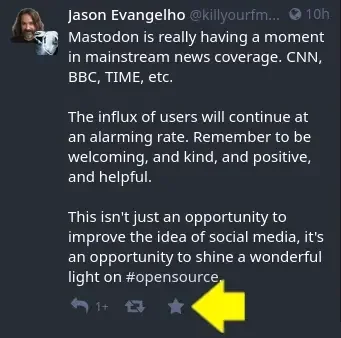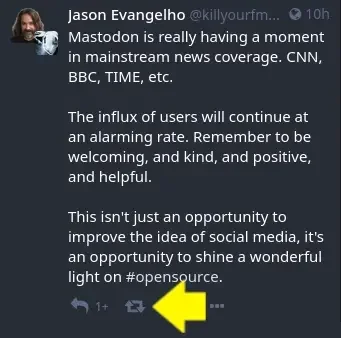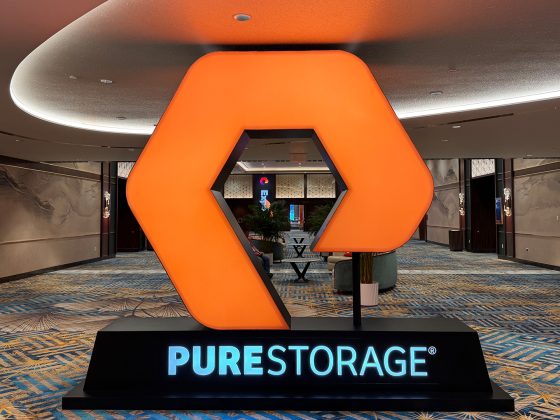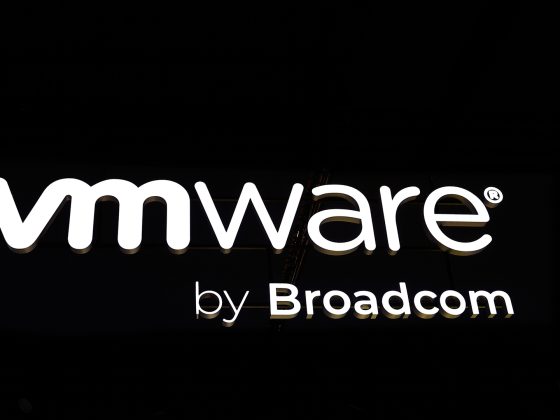Mastodon is not a corporation. All of its instances are staffed and supported by each server’s contributors. Here are a few other advantages.
Social media is not always sociable, and sometimes we need a sufficient impetus to change what we do and what we read. I began using Twitter as a replacement for my RSS reader in 2008, which revolutionized how I read and learned up to that point. Tweets from educators and free and open source (FOSS) advocates worldwide kept me informed and engaged in a learning network that was without equal. That’s changed over the past half dozen years, and recently a change in ownership and the shaping of what I read was driven more by an algorithm than by my personal interests and choices. During a yearly meetup of correspondents and editors of Opensource.com a few years ago, Seth Kenlon suggested giving Mastodon a try. I joined Fosstodon in 2019. Fosstodon is a Mastodon instance for a community of like-minded people who enjoy free and open source software.
From our partners:
Mastodon vs Twitter
Change is not easy. Being a creature of habit, I stayed with my old standby even though it was becoming increasingly tiresome. The threat of its sale in the spring of 2022 invited me to reconsider Fosstodon.
1. Favorite instead of like
The Mastodon interface is similar to Twitter. Rather than “liking” a post, you “favorite” a post on Mastodon by clicking the star icon under the post content.

(Don Watkins, CC BY-SA 4.0)
2. Share a post
Re-sharing on my old network is a “retweet,” but on Mastodon, it’s a “boost.” You click the double-arrow icon under the post content to boost a post.

(Don Watkins, CC BY-SA 4.0)
3. Mastodon instances
Because anyone can run a Mastodon instance, different instances not only have unique communities (like the ones that form around specific hashtags on Twitter, but Mastodon also has hashtags). Some have a unique set of rules. For instance, unlike my former social network, there were content moderation rules on Fosstodon that seemed strict initially. I made a post unrelated to FOSS software, and my post was removed. I was told it had been removed because I’d not issued a “content warning.” That irked me, so I looked for another instance and found a couple more to my liking. One was Mastodon.social, and the other Scholar.social. The former is a general server with no expectation about what you will post. The latter was an instance dedicated to academics. In all cases, there are well-enforced codes of conduct.
Each instance has rules, and while they differ slightly in the description, they clearly spell out what is and is not acceptable behavior. Fosstodon published its code of conduct, which established the rules and expectations of behavior on the site.
4. Open source social networking
If you want to run your own Mastodon instance or help develop one, you’ll be happy to know that Mastodon is open source. It uses an AGPLv3 license, and its source code is available as a Git repository. The software provides a social network server that uses the ActivityPub protocol to communicate with other servers worldwide.
Mastodon is not a single site on the internet but a series of sites spanning the globe and communicating with each other. This federated network is referred to as the “fediverse.” Unlike other social networks, where there’s a single owner of the network, Mastodon and other ActivityPub sites are owned by anyone who runs a server.
From a user’s perspective, this doesn’t matter at first. You can sign up on any Mastodon instance and then connect to all other instances.
There is power to this distributed design, though. If you encounter an instance with a community producing content you’d rather not see, you can block either a single user from that instance or the whole instance.
In the past month, I’ve returned to Fosstodon primarily because open source is my passion. I enjoy sharing open source content on Fosstodon because the other users of Fosstodon are generally receptive to posts about free and open source software. When I have something to share that’s not considered appropriate on Fosstodon, I share it on Scholar.social or Mastodon.social.
Not all instances have topics they focus on, and even those that do often use their topical interests as a guideline rather than grounds for strict removal of posts. If you have a particular interest, you might be able to find a community built around that topic, and you’re likely to see that you have an instant audience. Of course, you’ll still always be able to communicate with users of other instances, too.
Try Mastodon
Mastodon is not a corporation. All of its instances are staffed and supported by each server’s contributors. Some instances make it easy to support them with Patreon or PayPal.
I have found the fediverse a welcoming place that brings joy back into social networking. Have you joined Mastodon? What are your takeaways? Let us know in the comments.
Source: Opensource
For enquiries, product placements, sponsorships, and collaborations, connect with us at [email protected]. We'd love to hear from you!
Our humans need coffee too! Your support is highly appreciated, thank you!




